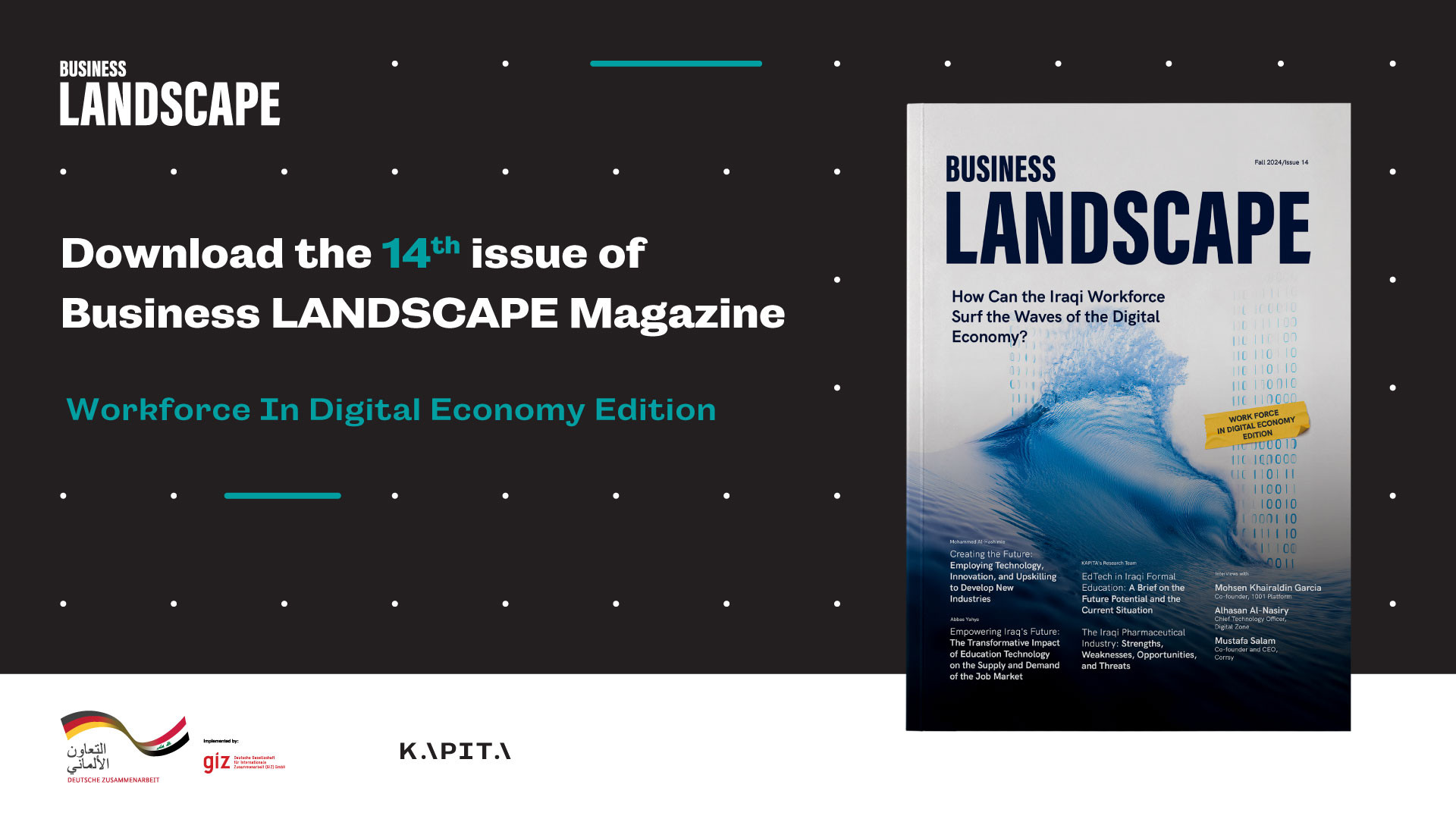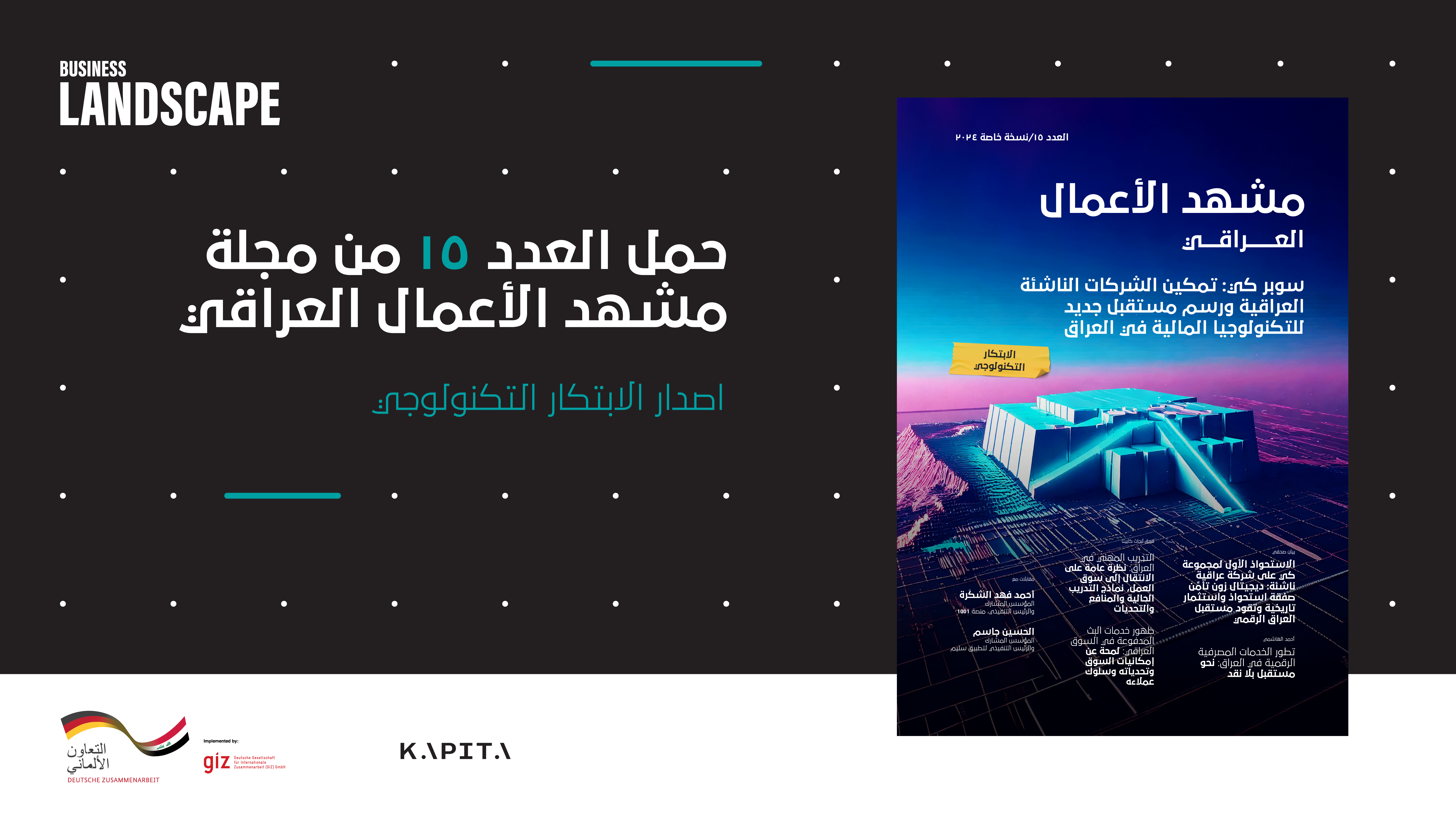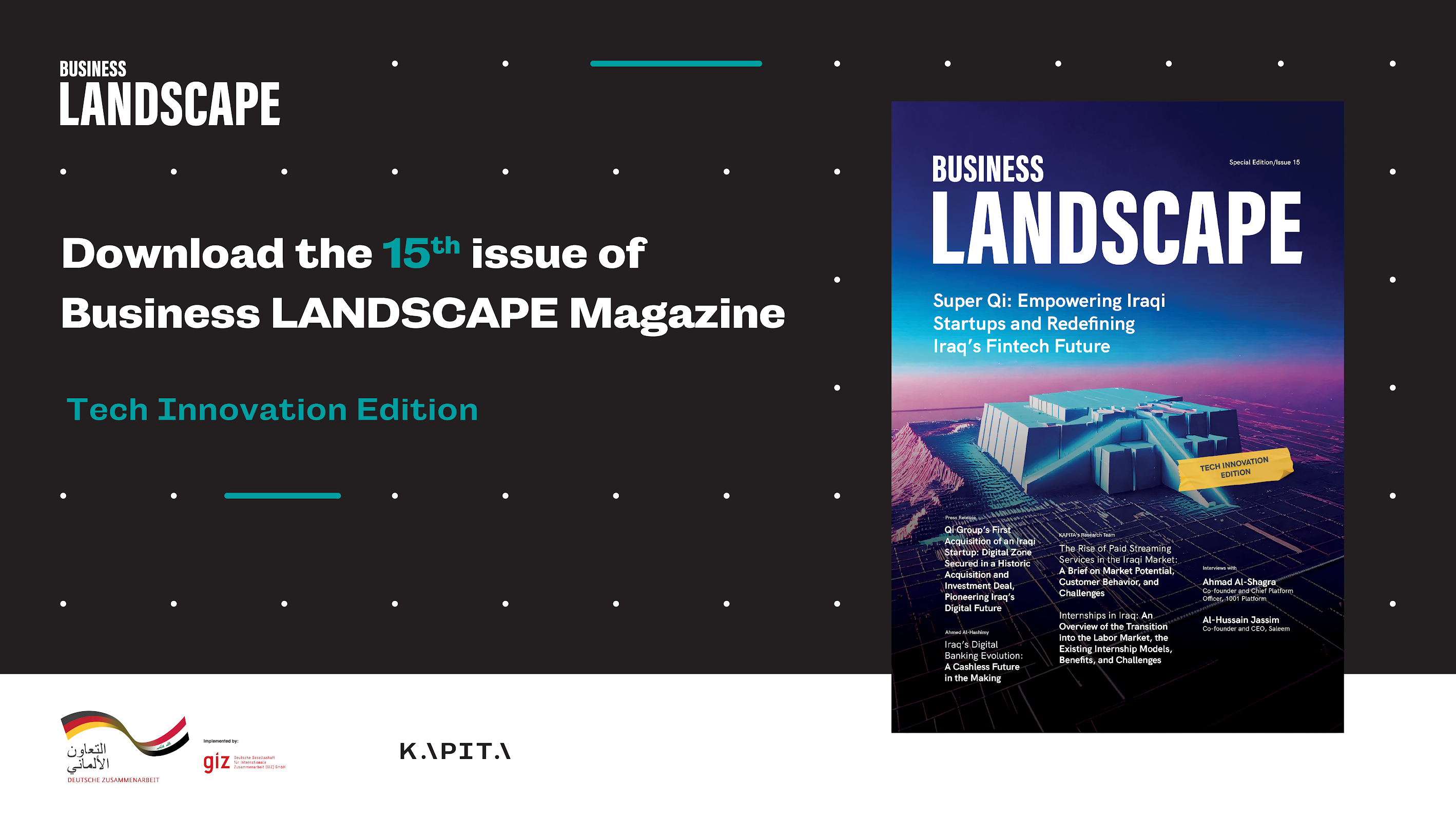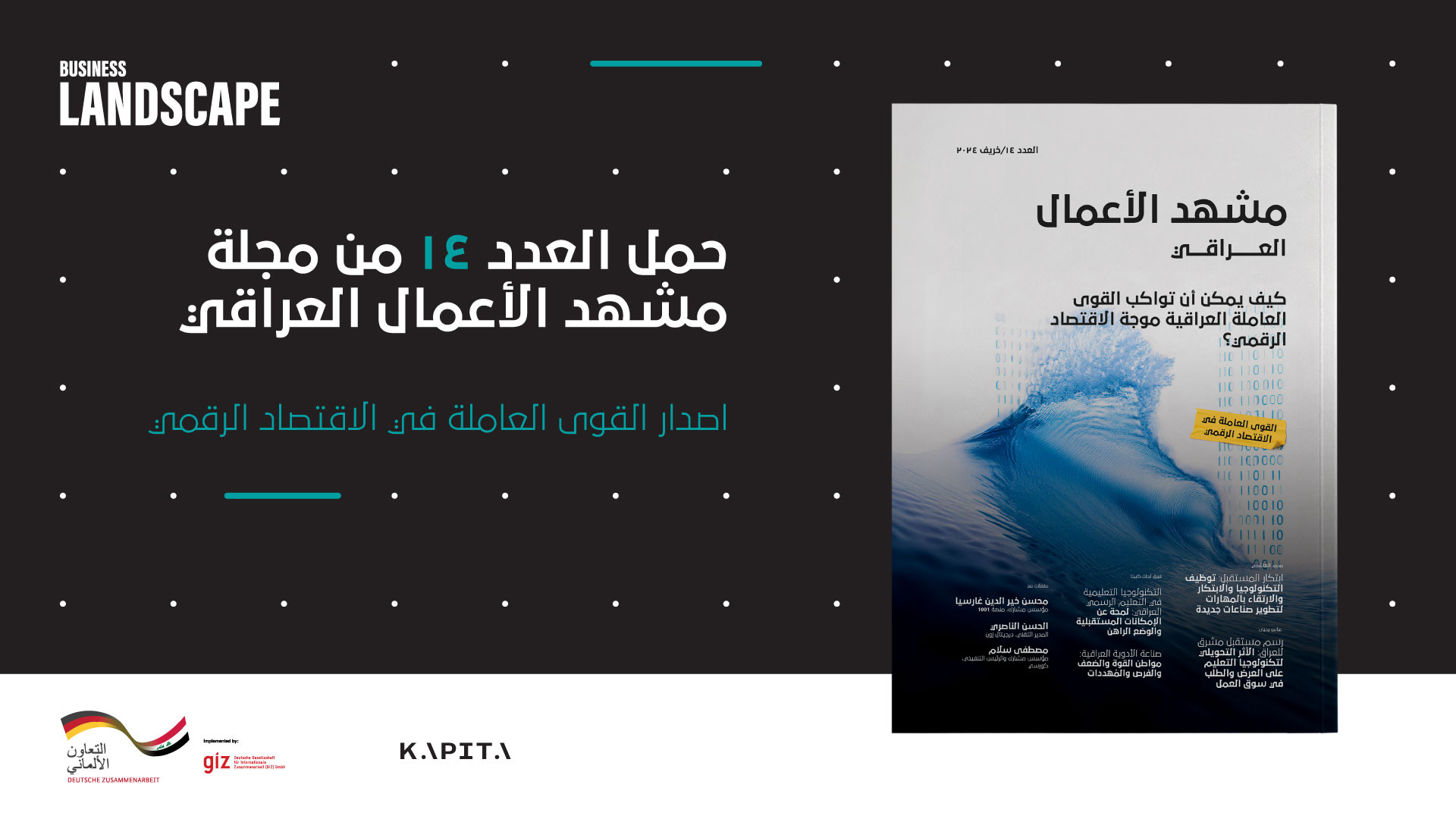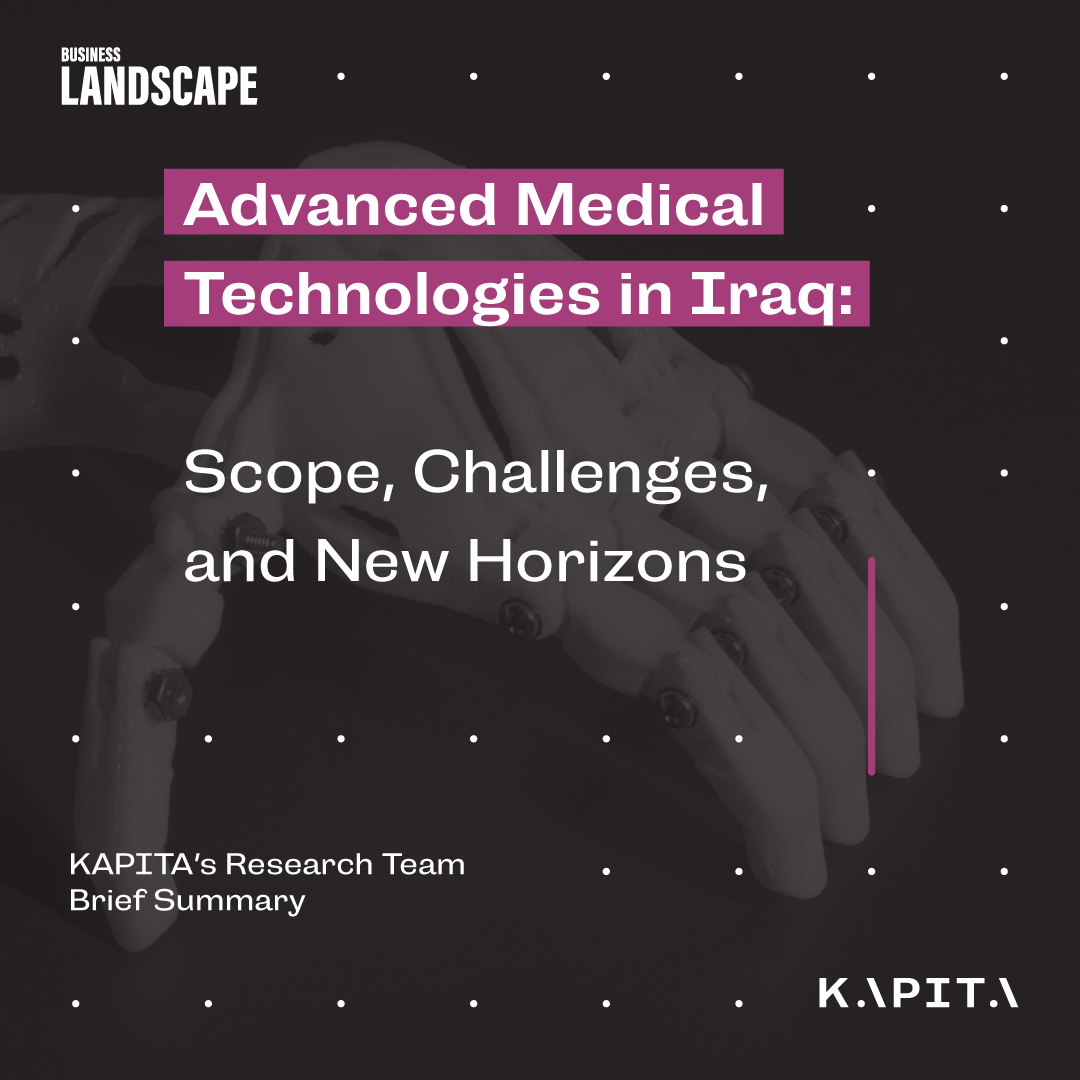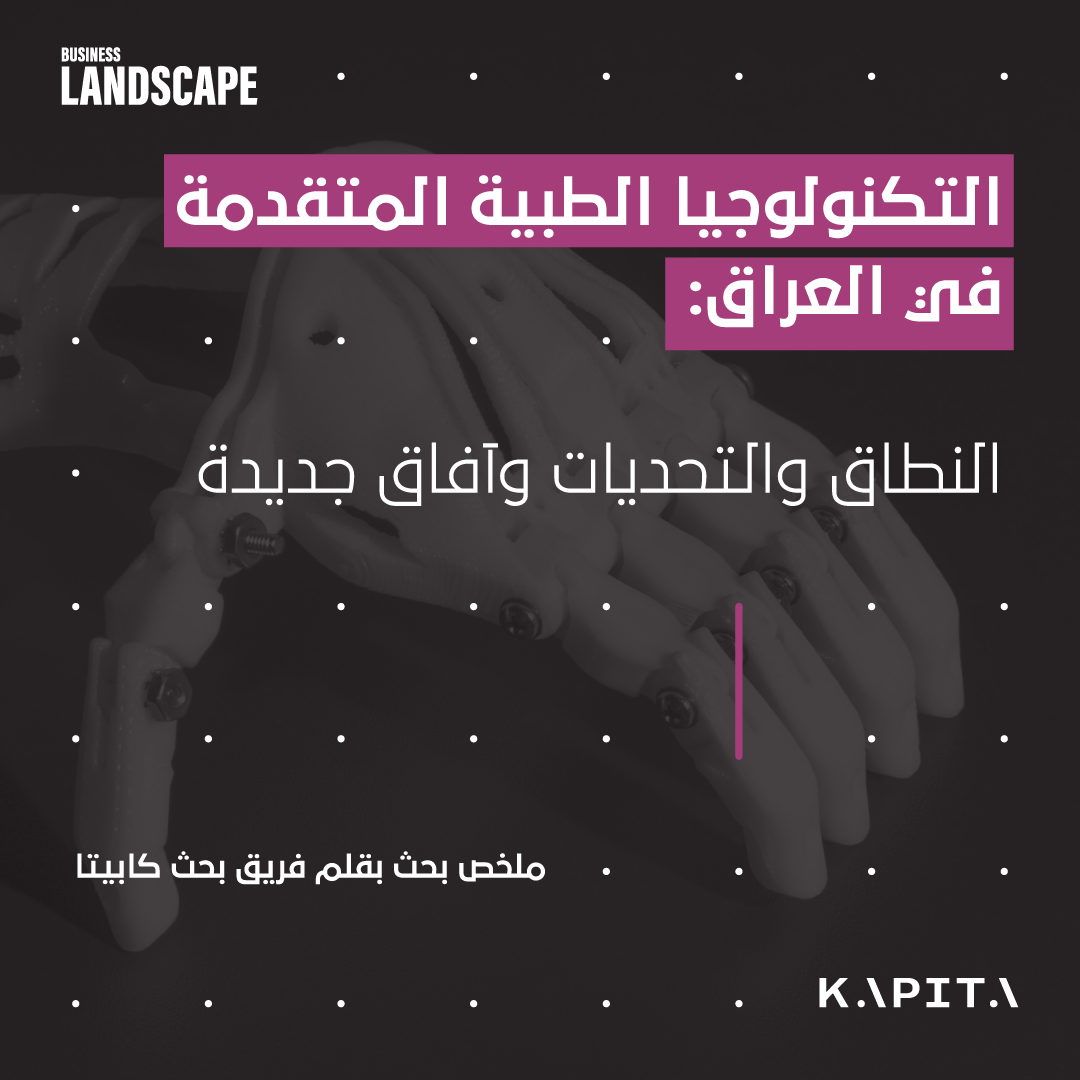We are pleased to celebrate the fourth anniversary of the Business LANDSCAPE Magazine with the launch of the 14th edition. Business LANDSCAPE is a quarterly published magazine that sheds light on the Iraqi private sector, its challenges, developments, investments, and the entrepreneurial scene. It serves as a platform for the Iraqi business ecosystem.
In this edition, we dive into Iraq's tech industry and workforce development. It covers the role of technology in driving financial inclusion and transforming key sectors in Iraq, such as agritech, education, and pharmaceuticals. Additionally, it examines the digital transformation of the marketing industry and the micro-startup scene.
We explore the role of innovation hubs such as QAF Lab in driving technological innovation and workforce development in Iraq by leveraging digital tools and upskilling local talent to meet the demands of both global and niche markets. We also highlight how QAF Lab is employing emerging technologies such as VR and AR to preserve cultural heritage by allowing people to see and interact with historical places and artifacts in the Ninewa region.
We delve into Iraq's educational digital transformation through the Abwaab platform, which is revolutionizing the sector with accessible, personalized online learning. Abwaab empowers students and reshapes the workforce by creating new roles.
We examine how social media and digital marketing are transforming Iraq’s marketing industry and business landscape. Specialized digital agencies like Sagerlabs added more value in terms of new job opportunities and specialized services. This shift has introduced new business models that support startups and tech companies.
We outline how micro-startups can leverage digital technologies to thrive locally and internationally, reduce costs, enhance customer communication, and reach a global audience. We categorize businesses by founder, service types, and investment levels, using Kawenter as an example of a micro-startup leveraging digital tools for operations and revenue collection.
We trace how the digital economy drives financial inclusion in Iraq through digital banking, mobile money, and data analytics. These technologies come with many financial efficiencies, particularly for small businesses and low-income individuals. Data analytics also allow personalized financial services for underserved populations. Financial inclusion, in turn, fuels digital economy growth by broadening participation and creating opportunities. We discuss challenges like the digital divide, low literacy, privacy concerns, and regulatory gaps.
Furthermore, Iraq’s pharmaceutical industry is undergoing a digital transformation to improve efficiency in drug registration, supply chain management, and distribution. This shift enhances accuracy and service delivery through government initiatives like the Iraqi FDA’s online registration and the Pharmacovigilance Centre’s digital drug safety reporting. Moreover, private platforms like Mercato, Capsula, and Dofied are streamlining the supply chain and digitizing cash collection. We also discuss challenges in this digital shift and potential solutions.
This edition provides a brief summary of Iraq’s pharmaceutical industry, tracing its history from 1920 to the present. We outline the roles of key regulatory bodies governing the sector and include important statistics on the pharmaceutical industry in terms of numbers and distribution. Additionally, we present a SWOT analysis of the Iraqi pharmaceutical industry, covering its strengths, weaknesses, opportunities, and threats.
We examine the integration of technology into Iraq's formal education system and how the COVID-19 pandemic has accelerated its adoption, revealing issues like inadequate infrastructure and ICT skills. We discuss how EdTech can help with personalized learning, class management, and ICT skill development, addressing challenges for institutions, staff, and students.
Our series of interviews includes Mr. Mohsen Khairaldin, who is the co-founder of 1001, an Iraqi entertainment streaming platform. He shares insights into the entertainment industry and evolving consumer behavior towards paid streaming services. Mr. Mohsen also shares how 1001 plays a role in boosting local production and job creation. He also explores Iraq's cultural influences on entertainment consumption and highlights emerging trends that are shaping the future of this sector.
Alhasan Al-Nasiry, the CTO of Digital Zone, the largest Iraqi online platform to provide e-products, discusses the challenges posed by the shortage of skilled professionals and the impact of inadequate educational programs and the brain on the Iraqi workforce in the job market, particularly in the tech sector. He also highlights the skills most in demand in the tech sector and what is needed to drive a sustainable digital transformation.
In addition, Mustafa Salam, the co-founder and CEO of the Corrsy platform, an EdTech startup that employs a gamification approach, shares the importance of building EdTech solutions to help Iraqi students learn beyond passing exams and offers insights into the opportunities and challenges in the education sector in Iraq.
